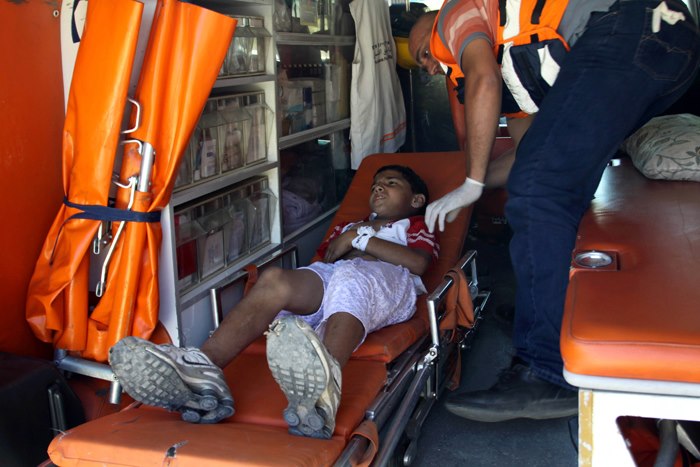Tag: Farmers
-
Help bring Jalaal home
September 11, 2012 | International Solidarity Movement, West Bank What would you do if 30 men armed with sticks and guns stormed into your home beat your little brothers and began beating your mother and ripping her clothes? On August 28 this happened to sixteen year old Jalaal Daraghmah. He did his best to protect…
-
Settlers destroy 18 olive trees Burin
By Alex Marley 11 September 2012 | International Solidarity Movement, West Bank Eighteen Palestinian-owned olive trees were destroyed by Israeli settlers in the village of Burin, near Nablus, when the illegal settlers attacked the Palestinian land on Tuesday 4 September 2012. Burin, located in the northern West Bank, comes under frequent attack from the illegal…
-
House demolitions and forced displacments in Area C
By Abu Sarah 2 September 2012 | International Solidarity Movement, West Bank Demolishing tents donated by the UN On August 28 Israeli occupation forces demolished tents donated by the United Nations (UN) in the Palestinian village of Susiya in the South Hebron hills. This is the second similar demolition within three months. Displacement in Zenuta…


